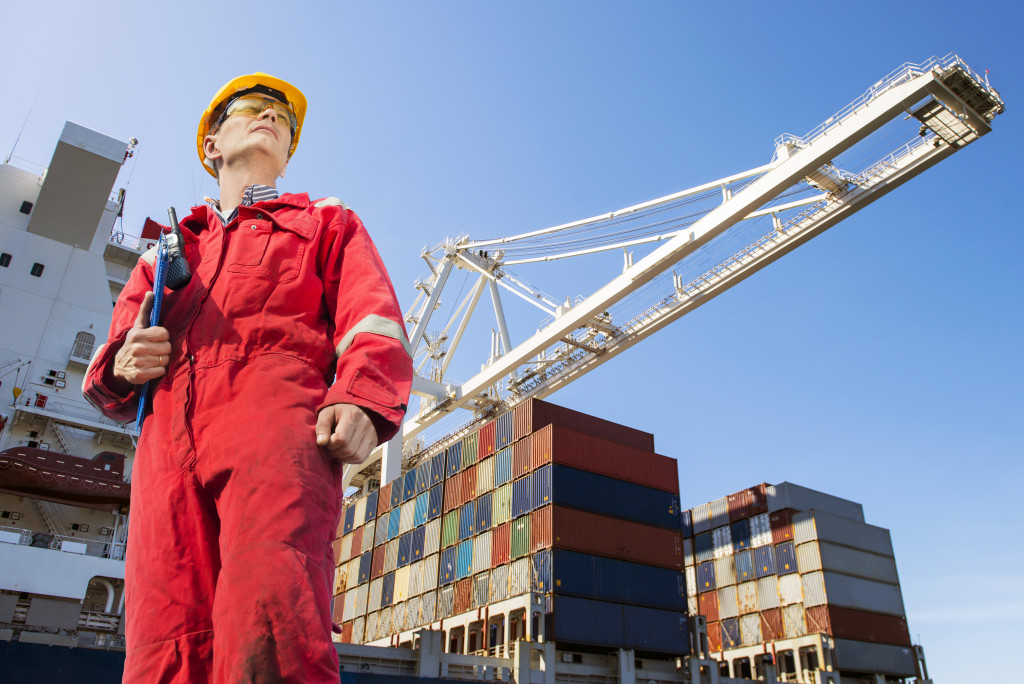Logistics is the process of handling how products are transported to their final destination, stored, and acquired. It could also entail looking for potential distributors or vendors and determining their accessibility and efficiency.
In the past, the term was a term used by military personnel to define how they moved, stored, and acquired items or equipment. Now, the business is using the term to describe how resources are transported and handled along the supply chain.
Understanding Logistics in Business
In business, logistics management helps deliver supplies to an external customer, transport them to the correct location, and acquire the right amount. Now, innovations and the overall complexity of the process have paved the way for a specialized logistics company and logistics management software.
One reason large companies started to dominate the market is the overall efficiency of their logistics. Manufacturing companies can also opt to outsource their logistics management, but they could do it internally if the price is too high.
Knowing the Three Types of Logistics
Inbound Logistics
Inbound logistics is transporting, storing, and moving information and products from the distributors to the warehouse and the production facilities. Usually, the manufacturers of the production facilities handle the production and processing.
Items transported through this logistics are raw materials. Others could be supplies for consumable products or manufacturing or different parts for production inputs. Using streamlined inbound logistics management software makes the process integrative and efficient. One excellent means for that is by using automated order-fulfillment systems.
Your shipping company can help you with setting up your inbound logistics. If your objective is to develop your business and transport your items safely, you will need a third-party logistics provider that offers affordable shipment options.
Inbound logistics is the first part of the chain, so you should have an improved process if it comes to logistics. That’s because it could affect your network’s remaining orders.

Outbound Logistics
Outbound logistics refers to the process of transporting information and finished products from a warehouse facility to the next supply chain link. Most products move from the warehouses and end up in the hands of consumers, labeling it as the order-fulfillment process.
In short, outbound logistics refers to companies delivering and shipping their products to a customer, while inbound logistics refers to the exchange between a company and its distributors. One of the benefits of hiring specialized companies is that you can track your products in real-time as they move from your warehouse to your consumers.
That will allow you to provide your customers with accurate estimated delivery times if something goes wrong. e-commerce companies have to deal with numerous stages in their outbound process. On-time performance is one of the keys to being the best.
Reverse Logistics
Reverse logistics is the process of transporting information or products from customers back through the supply chain. That could happen with items for proper disposal, recovering, recycling, resale, refurbishing, repairs, or servicing. If you cannot recycle a product due to certain elements, you should safely break that product down.
That could also happen in the event of returns. Reverse logistics covers the procedures after the end-product lifecycle or the point of sale. Your business should have a system for managing products that might need recovering from a customer due to a particular reason. To provide satisfactory customer service, you should provide them with an easy way to return an item.
That means you should hire a third-party courier to collect the products from customers instead of having them go out of their way to return them. Doing that means they won’t have to leave their homes, which is essential if they return an item because they were unsatisfactory or defective.
Your reliable company will know how to handle your package’s retrieval process, which could ease the burden from your side. It is pretty beneficial, especially for furniture and appliance distributors who need large vehicles in their reverse logistics process.
How to Improve the Logistics Process
You should ensure that your third-party logistics provider offers a wide range of services that fit your current strategies. You should also check if they could meet your business’s long-term goals. Look for an affordable rate to ensure accuracy. Every wise investment in third-party logistics services will help with your return on investment (ROI) down the road.
Logistics will make a massive difference in your company’s branding. If you have a reliable third-party provider, your network flow will increase visibility and convenience in each process, giving your company an excellent image to your customers.



